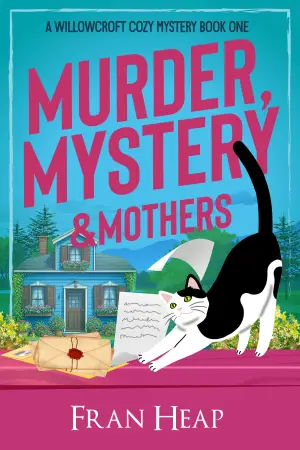Mystical Bonding: A Review of Nora Roberts’ Mind Games
It’s not often that a book grips me so tightly, both in heart and in mind, but Nora Roberts’ Mind Games does just that. As the pages unfolded, I found myself more than just a reader; I became a participant entangled in the psychic bond between 12-year-old Thea Fox and the chilling villain Ray Riggs. Set against the idyllic backdrop of Redbud Hollow, Kentucky, this novel weaves a haunting tale of family, tragedy, and the unbreakable ties that bind us.
At its core, Mind Games is as much a paranormal thriller as it is a love letter to family and belonging. We follow Thea, her brother Rem, and their beloved Grammie, Lucy, as they delight in two weeks of summer bliss—hiking, creating homemade goodies, and sharing a love that’s palpable. Roberts captures these moments beautifully, painting a picture of familial warmth that contrasts starkly with the darkness of tragedy when Thea’s parents are brutally murdered. This juxtaposition of joy and loss struck a deep chord with me, reminding me of the fragility of happiness and the inevitable heartache that life can bring.
The writing itself is classic Roberts: evocative and immersive. Each chapter is paced expertly, with tension building as Thea grapples with her newfound psychic abilities and the horrific reality of her connection to Riggs. The horror of a 12-year-old facing such malevolence is exacerbated by Roberts’ talent for vivid description. When Thea encounters Ray in her dreams, the chilling intricacies of their link are not only thrilling but profoundly unsettling. I felt a visceral fear, akin to the unsettling thrill I experienced watching Medium, where the supernatural intertwines with the everyday.
Highlighting the emotional gravity of the story, Thea’s relationship with Grammie is particularly poignant. Lucy proves to be the epitome of a supportive grandparent—full of wisdom, patience, and love. Their bond illuminates the theme of familial connection, grounding Thea in her struggle against the darkness that Ray represents. One of my favorite moments in the book occurs when Lucy reassures Thea about her psychic gift, calling it a “family legacy.” That notion of empowerment amidst adversity resonated deeply—reminding us that our strengths, however wrought from pain, are part of who we are.
The impact of loss is a significant theme woven throughout the narrative, and Roberts doesn’t shy away from the raw emotions that come with it. I found myself reaching for tissues more than once during Thea’s heartbreaking moments of reflection, especially during her speech to the detectives about her parents. The sense of community and love displayed by neighbors and friends in their time of grief beautifully reinforces the novel’s core message: love endures even in the face of heart-wrenching loss.
In closing, Mind Games is an engaging read for anyone who enjoys a mix of suspense, paranormal intrigue, and familial tenderness. It’s a complex tale that perfectly balances chilling elements while nurturing its core message of love and resilience. My reading experience left me with lingering reflections on the nature of connections we share and the legacies we build through love. Whether you’re a long-time Roberts fan or a newcomer, this book invites you to dive into a world where every psychic thread tells a story—and I urge you not to miss it!











